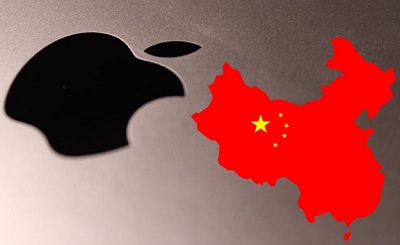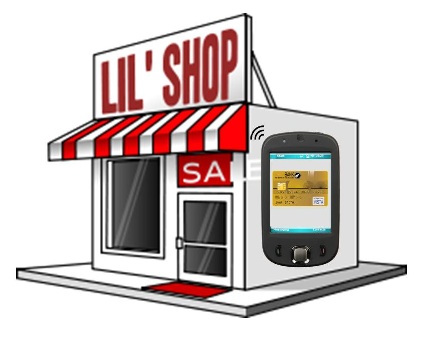China is becoming an attractive mobile payments market for Apple
Apple is looking to bring its new mobile payments service to China, which has become a very powerful mobile shopping market. The company has officially launched Apple Pay in the United Kingdom, hoping for the country to be the first success in its gradual progression into other countries with its mobile payments plans. Apple has been considering breaking into the Chinese market since May of this year, when the company began speaking to Alibaba and several Chinese banks.
Apple may soon begin to compete with Alibaba
Earlier this year, it appeared that Apple had intended to partner with Alipay, Alibaba’s mobile payments unit. No official announcement have been made to this effect, however, and Apple may opt to partner directly with banks instead, which may be quite complicated. Alibaba will be a formidable competitor for Apple, however, as the company has already established a very powerful position in the Chinese’s financial sector. Alibaba is one of the largest retailers in the country and has beaten out many others when it comes to mobile payments.
Chinese consumers have a great deal of love for mobile payments
 Mobile payments have become quite important for consumers in China. Many consumers have begun to rely on their mobile devices to get their shopping done, as this represents a more convenient way to purchase products. A growing number of retailers in China are beginning to support mobile payments in their physical stores, which is something that many consumers have been demanding for some time.
Mobile payments have become quite important for consumers in China. Many consumers have begun to rely on their mobile devices to get their shopping done, as this represents a more convenient way to purchase products. A growing number of retailers in China are beginning to support mobile payments in their physical stores, which is something that many consumers have been demanding for some time.
Competition in China expected to grow in coming years
Competition in China’s mobile payments space is relatively low, largely due to companies like Alibaba establishing a massive market share. This is expected to change in the coming years, however, as more companies begin showing interest in the mobile market. Apple, in particular, believes that China could be a very prominent opportunity for its mobile payments endeavors. Apple has already expressed interest in the Chinese market, but has yet to unveil any specific plans to bring Apple Pay to the country.
Small merchants have yet to show enthusiasm for mobile payments
Mobile commerce is having difficulty gaining traction among small businesses in the United States. According to the U.S. Census Bureau, these companies account for more than 90% of the businesses in the country, but they have yet to show significant support for mobile payments. Large retailers and banks, however, have become quite enthusiastic about mobile commerce, offering consumers services that allow them to manage their money and shop directly from the smartphones and tablets.
NFC technology proves somewhat unattractive for small businesses
One of the reasons that small businesses may not be supporting mobile payments is because NFC technology comprises much of the mobile commerce infrastructure. NFC technology allows digital information to be transmitted over short distances and it has become a powerful tool for the mobile payments space. Most prominent payment services, such as Apple Pay, make use of this technology in order to facilitate transactions, but this requires that physical merchants have an NFC-enabled terminal that is able to interact with this technology.
EMV standards may drive the adoption of mobile commerce among retailers
 For small businesses, adoption of NFC technology may be too costly, which has stunted the growth of mobile commerce among some merchants. An alternative, however, is new Europay, MasterCard, and Visa (EMV) standards, which retailers are required to embrace by October 1. These standards allow all retailers to adopt new payment terminals that support EMV cards. This will allow retailers to also embrace mobile payments, because EMV-enabled cards will be associated with the payment services being used by consumers.
For small businesses, adoption of NFC technology may be too costly, which has stunted the growth of mobile commerce among some merchants. An alternative, however, is new Europay, MasterCard, and Visa (EMV) standards, which retailers are required to embrace by October 1. These standards allow all retailers to adopt new payment terminals that support EMV cards. This will allow retailers to also embrace mobile payments, because EMV-enabled cards will be associated with the payment services being used by consumers.
Small retailers have little interest in EMV standards
While small retailers will also have to adopt EMV-enabled terminals, many have yet to outline plans to do so, partly due to high costs. If retailers do not embrace the new EMV standards, they will be held liable for any fraudulent purchases that are made through their establishments. Once small retailers begin feeling the consequences of these fraudulent purchases, however, they are likely to adopt the standards and begin acquiring EMV-enabled terminals.
 Mobile payments have become quite important for consumers in China. Many consumers have begun to rely on their mobile devices to get their shopping done, as this represents a more convenient way to purchase products. A growing number of retailers in China are beginning to support mobile payments in their physical stores, which is something that many consumers have been demanding for some time.
Mobile payments have become quite important for consumers in China. Many consumers have begun to rely on their mobile devices to get their shopping done, as this represents a more convenient way to purchase products. A growing number of retailers in China are beginning to support mobile payments in their physical stores, which is something that many consumers have been demanding for some time.
 For small businesses, adoption of NFC technology may be too costly, which has stunted the growth of
For small businesses, adoption of NFC technology may be too costly, which has stunted the growth of 